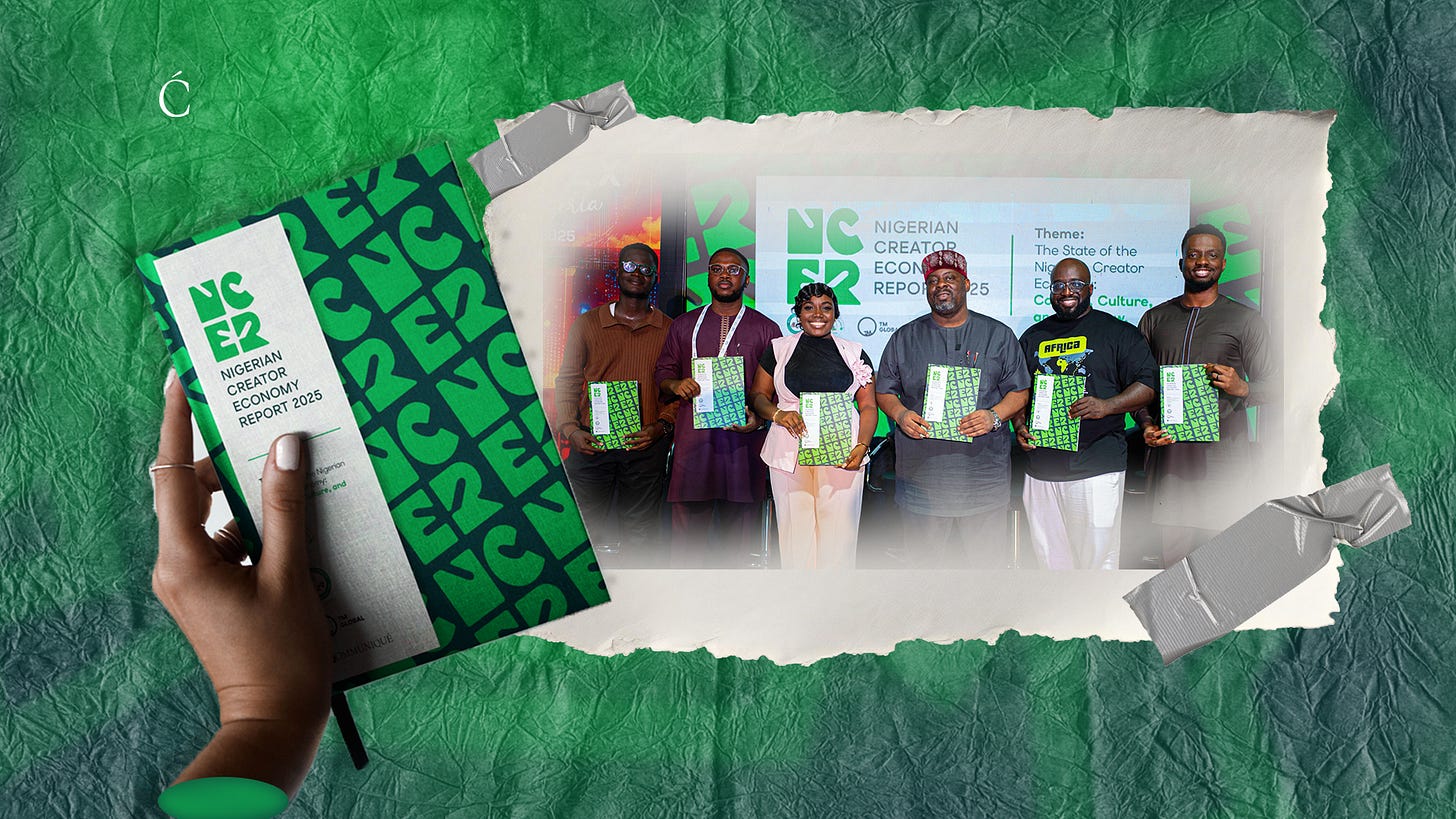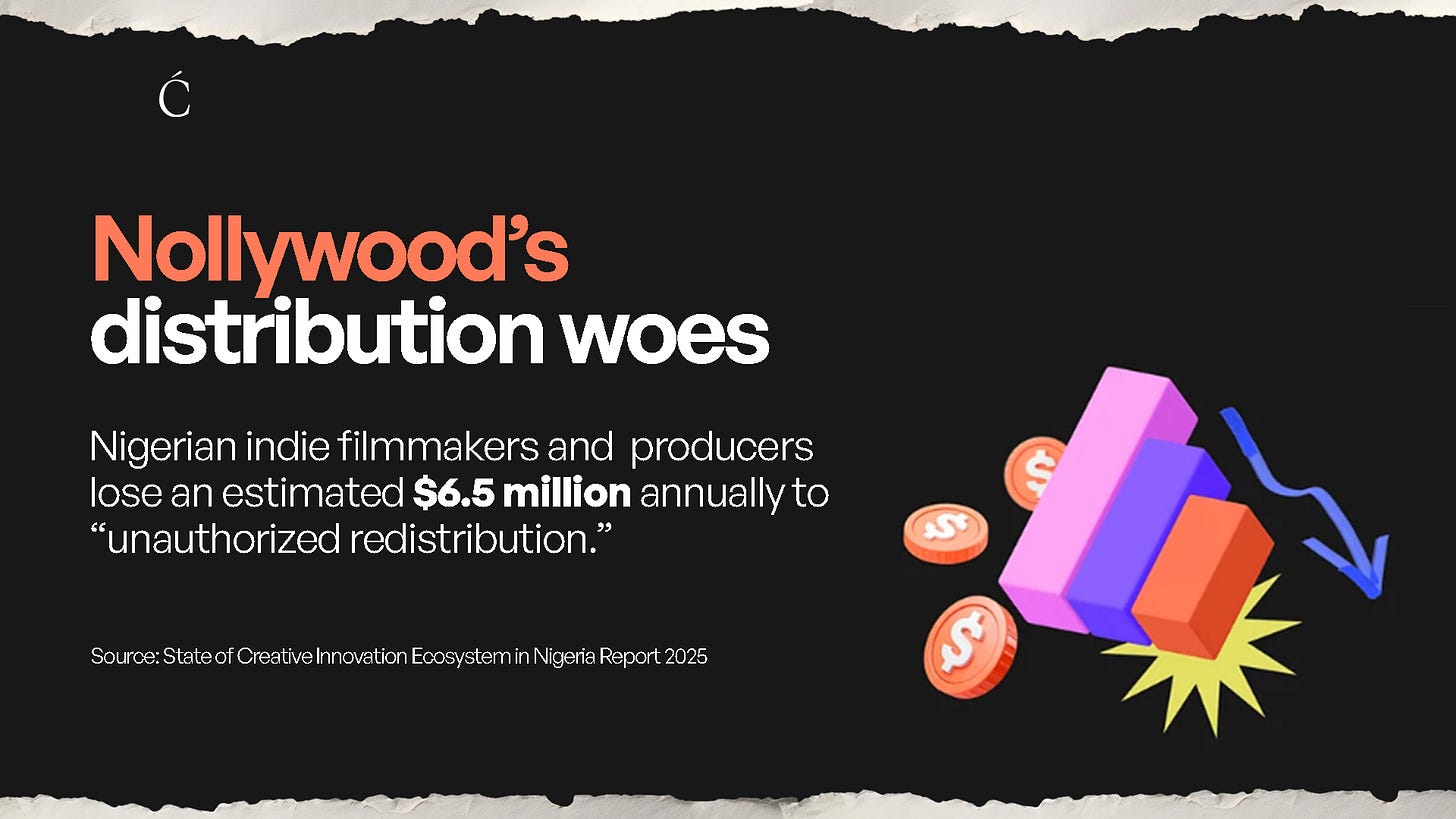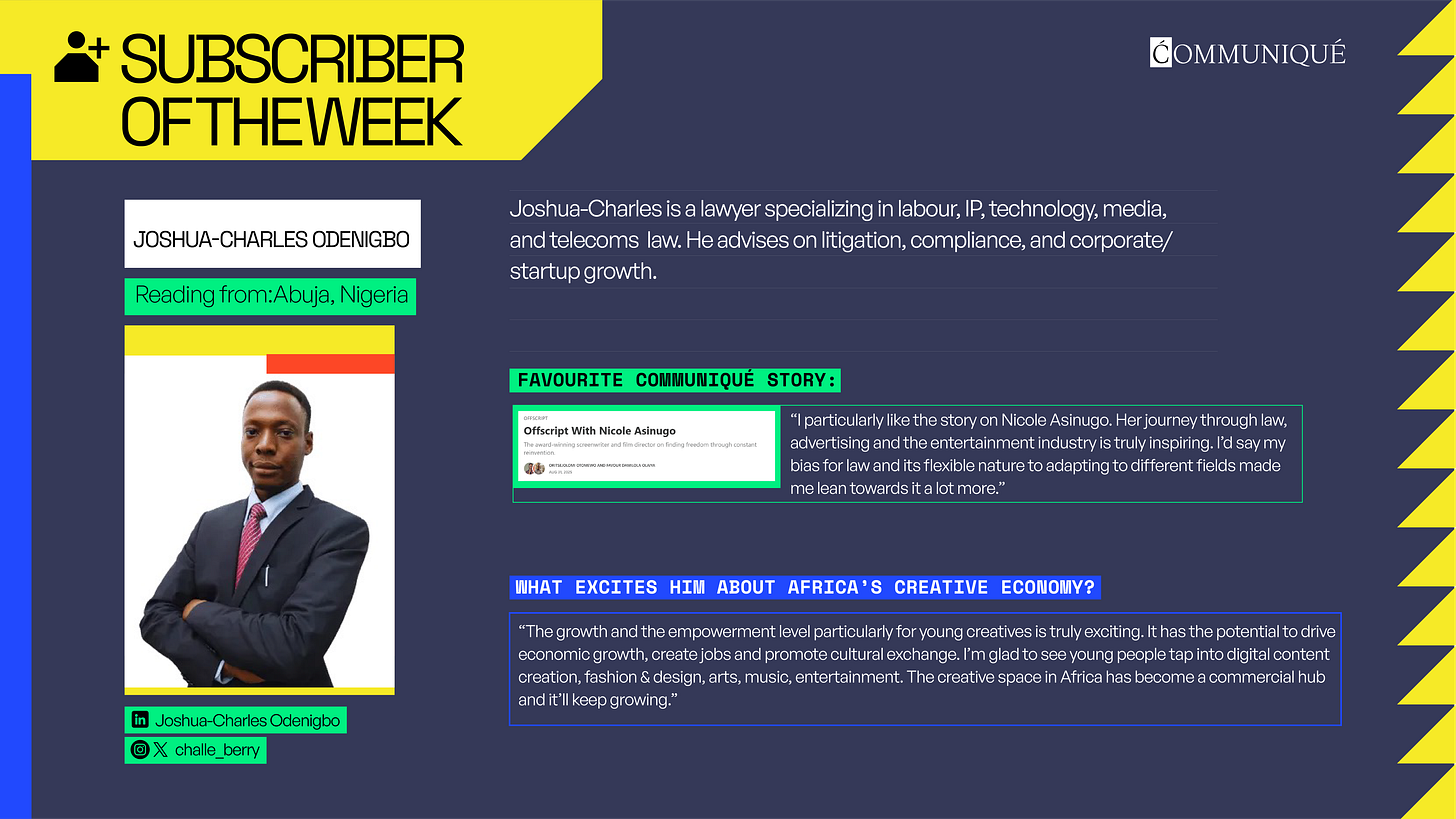Nigeria maps its creator economy + Morocco’s film industry reset
The first-ever government-backed report on the Nigerian creator economy debuts, and Morocco restructures its cinema sector.
Hello!
ICYMI, this month marks one year since Communiqué became a full-fledged publication. What a journey it has been! We have achieved some pretty impressive milestones that we are proud of. (We talked about one of them in today’s digest.)
None of it would have been possible without you. We say a big thank you to everyone who has shared our work with friends, subscribed, commented, or read along. Your support has kept us going. A hearty cheer to another year of doing bigger things.
In today’s digest, we discuss
The launch of the first-ever government-backed report on the Nigerian creator economy
Morocco’s new cinema-focused legislation.
Centre Spread 🗞️
Nigeria’s first creator economy report launches at GITEX Nigeria
Communiqué and TM Global have partnered with the National Council of Arts and Culture (NCAC) to launch the inaugural Nigerian Creator Economy Report 2025 at GITEX Africa. The publication provides the first data-driven analysis of one of the country’s fastest-growing sectors.
Themed “The State of the Nigerian Creator Economy: Content, Culture, and Cashflow”, the report values Nigeria’s creator economy at $31.2 million as of 2025, underscoring the country’s pivotal role in Africa’s digital creator boom. Across the continent, the sector was worth $3.08 billion in 2023 and is projected to hit $17.84 billion by 2030, growing at 28.5% annually.
“This report marks a turning point,” said David I. Adeleke, Founder & CEO of Communiqué, urging policymakers and investors to “match cultural power with economic strategy, treating creativity not as a soft export but as a key driver of growth.” Elijah Affi, Co-Founder of TM Global, added: “When policy, capital, and community align, growth becomes repeatable.”
Key findings reveal explosive growth: Nigerian artists received over ₦58 billion from Spotify in 2024, a 146% increase from 2023, while Nollywood box office revenue jumped 60% to ₦11.5 billion. Nigerian content on YouTube surpassed 20 billion annual views, with over 1,500 channels crossing the 100,000-subscriber milestone and generating over $10 million in AdSense revenue in 2024.
Yet, the report warns of a persistent monetisation gap, with 56.45% of Nigerian creators earning less than $100 a month, and just 3.23% making above $5,000—pointing to extreme income concentration at the top.
Government support is central to the sector’s rise, through programs like iDICE, the 3 Million Technical Talent initiative, and the Creative Economy Development Fund, seeded with $200 million from Afreximbank.
The Minister of Arts, Culture, Tourism and Creative Economy, Hannatu Musa Musawa highlighted the importance of the report noting that “The future of Nigeria’s economy will not be written by oil and gas alone—it will be sung, filmed, painted, designed, coded, performed, and shared by our creators.” While the Director General of the NCAC, Obi Asika noted that the creative industry has been ignored for too long but the report will change that. “Today, with data in hand, we can finally measure the scale of our creative industry's global impact.”
Read the full report here.
Morocco gets new film law
A new law overhauling Morocco’s cinematic industry came into effect on Monday, September 1, 2025. The legislation is designed to attract greater domestic and foreign investment, create jobs, and raise the global visibility of Moroccan cinema.
At its core, the law reorganises the Morocco Cinematographic Centre (Centre Cinématographique Marocain, CCM). The agency is now tasked with regulating licensing in production, distribution, screening, and promoting Morocco as a leading filming hub. Other provisions include the creation of a national cinema registry, new conditions for production activities, and updated rules for importing, exporting, and screening films. The law also introduces an official “studio label” and professional accreditation cards to help standardise industry practices.
The reforms build on Morocco’s long cinematic tradition, both as a producer of local films and as a sought-after destination for foreign productions. Over the decades, the country has provided the backdrop for global hits ranging from Lawrence of Arabia to Game of Thrones. According to the CCM’s latest annual report, Morocco remains a hotspot for international productions, with foreign shoots investing around $136 million (1.24 billion MAD) in 2024, up from $125 million (1.14 billion MAD) in 2023.
The overhaul also signals the government’s intention to focus more on cinema’s role in economic development. Earlier this year, the CCM committed over $677 million to support 29 film festivals nationwide.
Crunch Time 📈
Nollywood’s distribution woes
Catch Up 📬
Communiqué is now free to read
Communiqué is entering a new growth phase as we celebrate one year since growing from a one-man Substack side hustle into a full-time publication. With this milestone, we’ve made an important decision: the paywall is coming down. We’re moving from a subscription model to a membership model. (You can read our full announcement about why we’re making this shift here).
Everything we publish; essays, reports, and analyses, will be open for everyone to read and share. So, feel free to dig through the archives, catch up on what you’ve missed, and share your favourite pieces with friends and colleagues.
And if you believe in what we’re building, you can show your support and help us grow even stronger by donating here.
Communiqué’s Subscriber of the Week 🤩
Curiosity Cabinet 🗄️
In Kenya, a series of court rulings threatens the stability of royalties, an important revenue source for musicians.
Nollywood-comedy skit collaborations don’t come cheap—creators reportedly pay between ₦200,000 and ₦2 million to feature established actresses in their short-form content.
Circuits TV has added over 80 films and series of Ugandan cinema to its bouquet. (Pair this analysis of their business model).
Nigerian fashion designers are finding an unexpected market abroad, with young Americans turning to them for unique prom dresses.
In the latest edition of Offscript by Communiqué, Award-winning screenwriter Nicole Asinugo shares how she pivoted from law to journalism, and then advertising, found her voice in Nollywood, and is now charting a bold new path with her own storytelling lab.
Here is what is happening in Africa’s creative economy this weekend and next week:
6 September: The second revamped and expanded edition of Africa Creator Festival holds in Johannesburg, South Africa
8-10 September: A special creative economy session will be held at the Economic Society of South Africa Conference 2025 in Somerset West. Researchers from the Africa-Europe Creative Economies Cluster of Research Excellence (Africa-Europe CoRE) will present their latest work at the conference.
Explore more of Africa’s creative economy in one place. Communiqué’s African Creative Economy Database tracks 1,000+ companies, events, investors, and government actors across the continent.
That’s it for this week’s Digest. See you next week.






